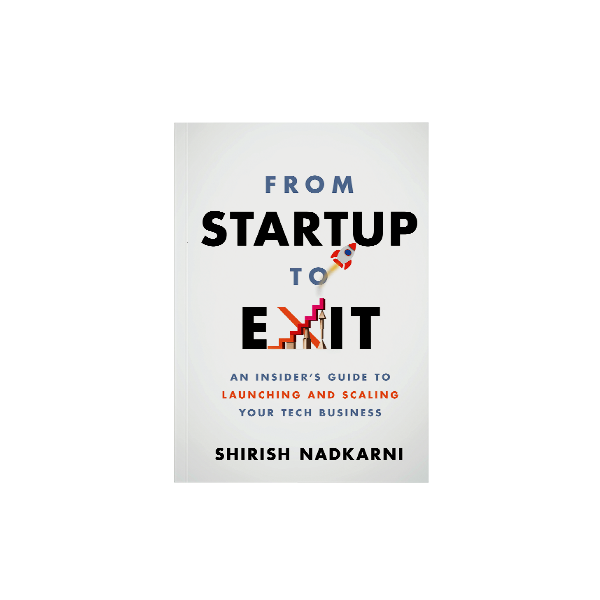Deciding how to split up founder equity can often be an awkward process especially when there are multiple co-founders with different experiences and contributions. Several years ago, I came across a situation where 5 co-founders worked on a startup idea for more than 6 months and then split up because they couldn’t agree on how to divide the equity among themselves. Clearly you want to avoid this situation and I recommend that you discuss equity splits even before you start working on your idea with your co-founder(s).
Cash Investment
If you and/or your co-founder(s) are planning on investing actual cash into the company, it should be treated like any other outside investment. Let’s say that you and your co-founder are both investing $50K into the business. You could value your startup at $500K, which would imply that each of you would get $50K/$600K or 8.3% of the company’s equity.
Employee Option Pool
I recommend that you set aside between 15 to 20% of the company’s equity for option grants from which you would grant options to employees that you hire. Assuming you set aside 20% for the option pool and you both invest $50K into the business that would leave 63.33% of the company’s equity to be split up between you and your co-founder.
Utilizing an Experienced Arbiter
You will find many articles on the internet with detailed guidance on how to split up founder equity based on a variety of factors (time investment, expertise, startup role etc.). However, even with those parameters, you could still end up in a difficult negotiation with your co-founder(s) on how to split up your equity. I, therefore, recommend that you find an experienced and well respected founder or investor to come up with the equity split recommendation that you all can to abide by. That person can interview each of the co-founders to understand their contributions and then recommend the equity split that you should follow. This will lead to a lot less contention and bad feelings among the founders.
Assuming that you can’t find a mutually agreeable arbiter, here are some guidelines that you can utilize to decide on the equity splits.
Time Investment
I highly recommend that you and your co-founder(s) work full time on your idea (even if you are moonlighting). Anything less than a full-time commitment will not get you very far in making progress with your startup. If someone is not able to make a full-time commitment then they should be treated as a part-time employee and they should receive equity from the option pool that you have set aside for employees.
Idea Development
Ideas can be dime a dozen as a startup’s success will depend largely on execution. However, if you have spent a few months seriously validating the idea before recruiting a co-founder, then you should get some credit for developing the idea. Or perhaps, you are a technical founder and you have already developed a prototype for your idea. Idea validation should get you a 5% premium whereas IP development should get you a 20 to 25% premium depending on how much time you have invested in developing the IP.
CEO Role
If there are 2 co-founders, you can’t split the equity 50/50 as you could end up in a tie in deciding contentious issues. Since the CEO has to be the final arbiter of decisions, they should receive more equity. Investors also value the CEO role compared to other roles in the company and will grant more equity to a CEO if they are hiring an external CEO. The CEO should get a 5% premium for taking on that role.
Successful Repeat Founders
If one of the founders has been a successful entrepreneur before, they can considerably increase the chances of success in raising funding, getting a higher valuation and improving the prospects for the company. They should be able to command anywhere from 50 to 100% premium for bringing their prior expertise to the company.
Doing the Math
Imagine you have two co-founders one of whom is a technical founder who has developed a working prototype for their product. The technical founder then convinces a successful startup CEO to join the company as a CEO and co-founder. Both start with 50/50 split in terms of shares. The technical founder gets another 5 shares for idea validation and 25 for IP development. The CEO co-founder gets 5 more for being a CEO and 50 more for being a successful entrepreneur. So you end up with 80 shares for the technical co-founder and 105 shares for the CEO leading to a 43%/57% split in terms of equity. While it may seem unfair to give the CEO a higher share, it might be worthwhile giving that person more equity if they are able to help the technical founder raise funding at a high valuation leading to less dilution and a higher equity stake post funding.
Vesting
Once you have decided on how to split founder equity, it is important each of the founders agree to a vesting schedule for the equity allocated to them. Typically, the vesting takes place on a monthly schedule over a 4 year period. Note that there should be no vesting for any cash investment that any co-founder makes into the company.
Splitting equity is one of the first important decisions that you will make with your co-founder(s). It will give you a good sense of how much you respect your co-founders and what type of relationship you will have with your co-founder(s) over the long term. It is important that you be fair in your discussions as you want your co-founders to feel that they have an important stake in the business. Seek advice from respected entrepreneurs/investors in the community so you get through the discussion with the feeling that you were all treated fairly.
……………………………..
If you liked this article, check out my book that covers all aspects of the entrepreneurial journey.

